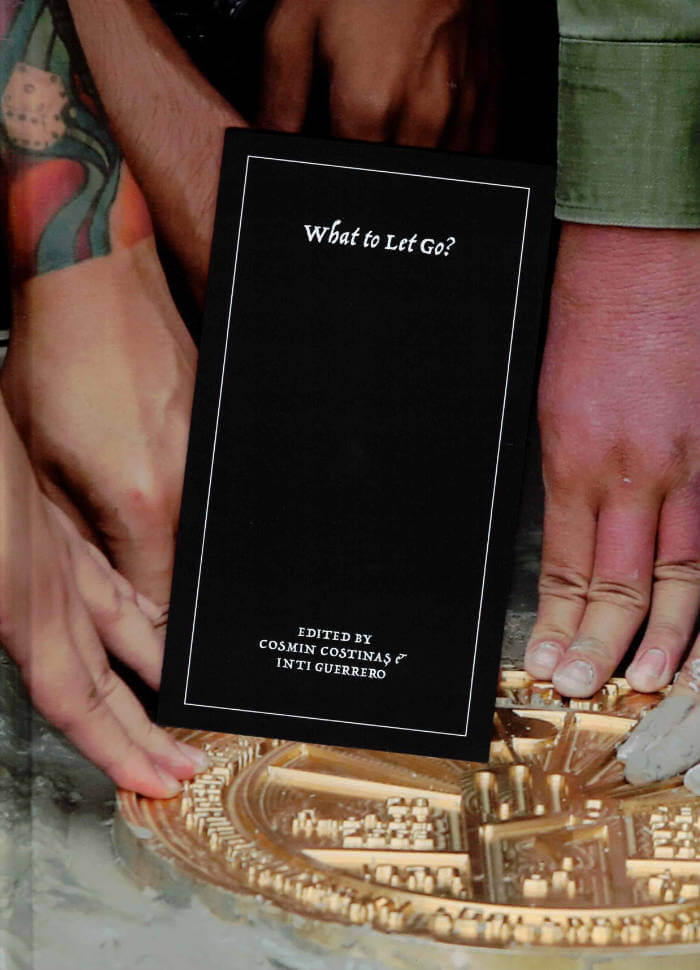
What to let go?
Cosmin Costinaş ed. , Inti Guerrero ed.
What gets counted within the category of heritage, and who gets to do the counting?
This book contributes to discussions about what counts as heritage now, who gets to do the counting, and broader related issues around the subject of cultural sovereignty. It unpacks historical narratives and political memories linked with objects, sites, and ceremonies that have been lost, looted, restituted, repatriated, revived, or reinvented. Through its diverse line-up of discourse, poetry, and original artistic contributions, it weaves together subjects and geographies that are not usually part of the same conversation —from plundered cultural belongings held in colonial collections, to processes of renaming or removing symbols of past eras— and considers how they relate in the context of recent social upheavals and political processes across continents.
In our era of dangerous revisionism, when history has become a battlefield for both the left and the right, we are asking: How can art reconfigure our collective foundational myths? And of what should we let go on the journey towards figuring it out?







